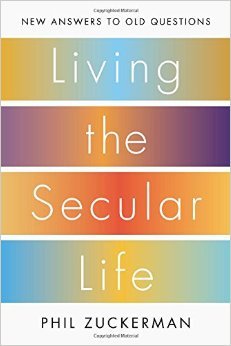Fitzgerald 2007, 54).
In many cases, conceptualizations of the secular are imagined only after the category of religion has been populated with ‘the good stuff’, with the secular receiving decidedly less good stuff (perhaps an understatement in certain contexts). In this view, the secular was an afterthought, a ‘second-class citizen’ so to speak. However, what happens if the scholarly lens is shifted towards the ‘secular’, with ‘religion’ being placed on the back burner? In Thomas Coleman’s interview for The Religious Studies Project, he sits down with sociologist Phil Zuckerman and philosopher John R. Shook to discuss all things ’secular‘. Making their own contributions to the discourse, Shook and Zuckerman briefly discuss the forthcoming Oxford Handbook of Secularism they are co-editing, the growing field of secular studies, what it might mean to ’be secular‘, different secularisms, and offer up two different views of the relationship between categories such as ’religion‘ and ’secular‘.
Podcast: Play in new window | Download | Embed
Subscribe: RSS
You can also download this interview, and subscribe to receive our weekly podcast, on iTunes. If you enjoyed it, please take a moment to rate us. And remember, you can use our Amazon.co.uk, Amazon.com or Amazon.ca links to support us at no additional cost when buying books, cooking utensils, waistcoats, stuffed animals, and more.
References
- Fitzgerald, Timothy. 2007. Discourse on Civility and Barbarity: A Critical History of Religion and Related Categories. New York and Oxford: Oxford University Press.










